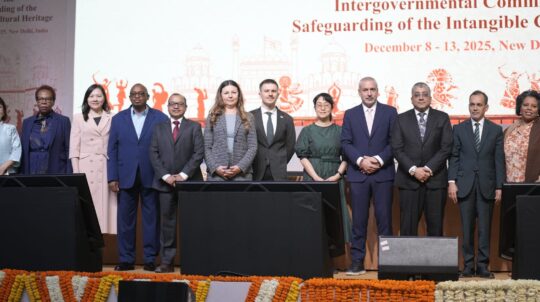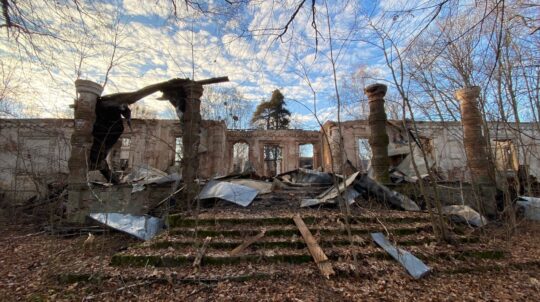On February 1, the first international conference on Ukrainian culture, “Cooperation for Resilience”, brought together representatives from 28 partner countries, the European Commission, and UNESCO to discuss culture’s role in Ukraine’s recovery.
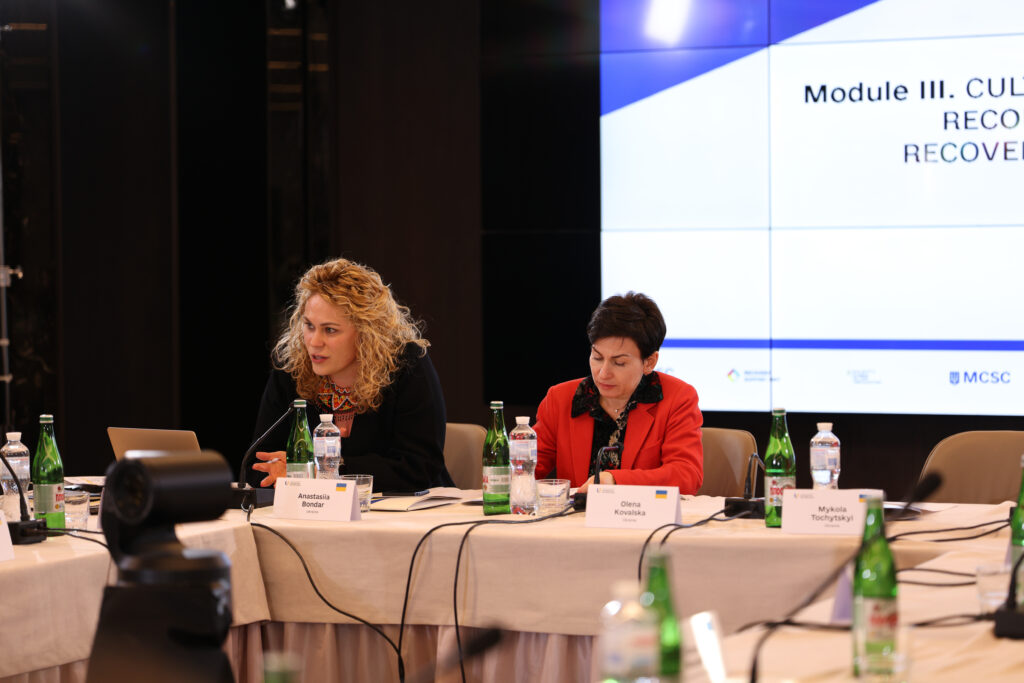
Anastasiia Bondar, Deputy Minister of Culture and Strategic Communications of Ukraine for Digital Development, Digital Transformation and Digitalization, moderated the session. She shared alarming statistics. As of late January 2025, 1,333 cultural heritage sites and 2,185 cultural infrastructure facilities across Ukraine had been damaged by russian aggression.
Olena Kovalska, Deputy Head of the Office of the President of Ukraine, stressed that preserving Ukrainian culture is crucial for national security:
“Protecting our culture and heritage is a strategic priority. The enemy aims to take not just our land but also our identity – our language and traditions. We must do everything possible to safeguard our heritage and strengthen the cultural sector’s resilience”.
Clemente Contestabile, Diplomatic Advisor to the Minister of Culture of Italy, reaffirmed Italy’s commitment to supporting Ukraine’s cultural restoration, stressing that the loss of Ukrainian artifacts, museum collections, libraries, and archives is a tragedy for the entire world.
“Italy fully supports Ukraine in restoring its cultural heritage and safeguarding its cultural identity”, he stated.
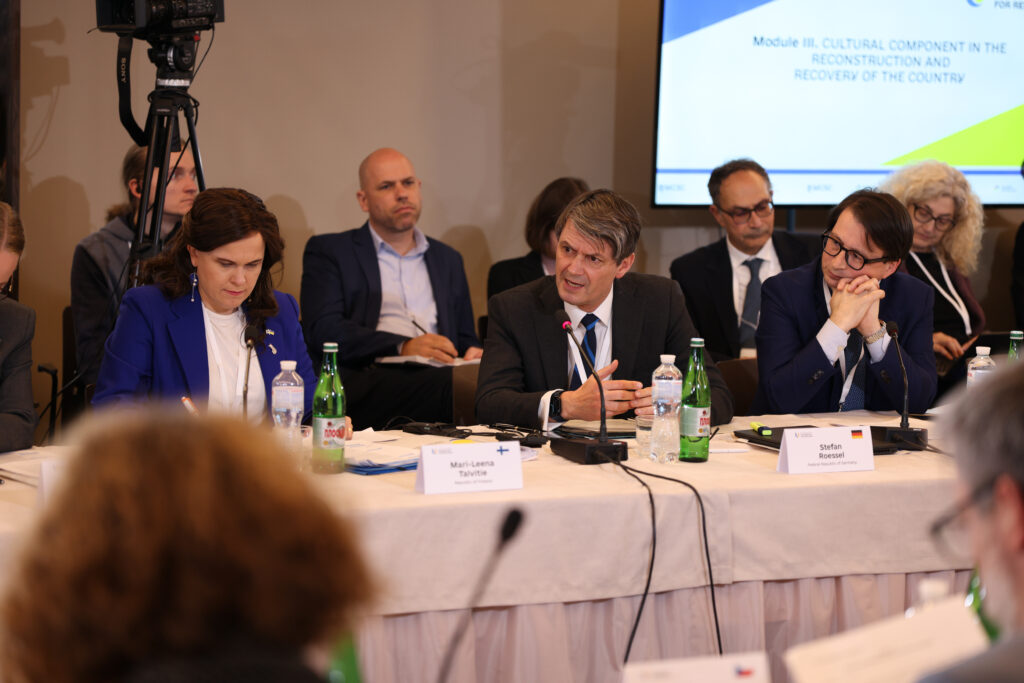
Stefan Ressel, Deputy Director-General for Culture and Society at the German Foreign Ministry, emphasized the importance of international coordination in rebuilding cultural infrastructure:
“This conference sends a powerful message of unity. Effective international coordination is essential for successful reconstruction. Last year’s Ukraine Recovery Conference in Berlin established the foundation for integrating culture into the recovery process. I hope this year’s conference in Rome will be a turning point in mobilizing global efforts to support the role of culture in Ukraine’s restoration”.
Krista Pikkat, Director for Culture and Emergencies Entity in the Culture Sector (CLT/CEM) at UNESCO, underscored the need to update international legal frameworks. She emphasized that Ukraine’s experience has revealed significant gaps in existing regulations, highlighting the urgent need for stronger legal mechanisms, especially in times of full-scale war. “Although international legal frameworks are in place, many—such as the 1954 Hague Convention and the 1972 World Heritage Convention—were established decades ago. As circumstances evolve, we need new legal tools to ensure accountability and effective protection”.
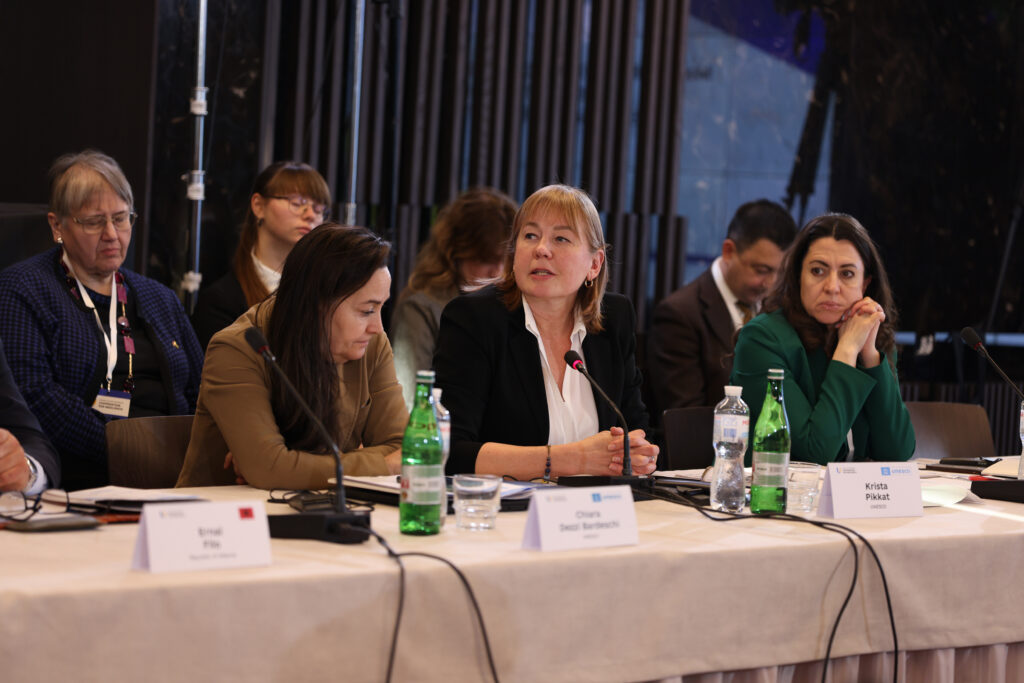
Anastasia Bondar closed the discussion by emphasizing that Ukraine is not just seeking aid but turning its challenges into expertise, shaping global discussions on humanitarian law and cultural heritage protection.
She stressed that culture is a key part of post-war recovery, guided by the “Genius Loci” principle and the unity of citizens around cultural identity – both crucial for resilience and national strength.
Culture should be recognized as a Sustainable Development Goal , driving long-term progress alongside economic, social, and environmental priorities. By fostering creativity, preserving heritage, and strengthening social bonds, culture lays the foundation for inclusive, people-centered development.
